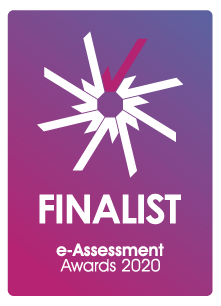Videos have become an important medium for remote learning. Video is a great way to communicate with students and an excellent learning resource. Information and guides to support you with the creation and editing of videos that can be found on the digital learning website. But once you have created our video content, where do you host it?
ReCap
When it to comes to choosing a platform to host your videos, it is personal preference. However, we recommend that you use ReCap wherever possible. ReCap is centrally supported by Newcastle University, it’s free to use, and all videos are hosted online. Importantly ReCap is also fully integrated into Canvas which makes the process of embedding videos into a Canvas course very straight forward.
ReCap allows you to add embedded questions (e.g knowledge checks and quizzes) within the video. Videos can be sorted in group teaching folders that will make it easy for all teachers even if they didn’t create it, to embed the video content into a canvas course if you are unavailable.
Microsoft Stream
You may use Microsoft Stream to host your videos, this option comes with a couple more considerations. Embedding a video from Microsoft Stream into your Canvas course is only a few extra steps, please be aware Microsoft Stream is not fully integrated into Canvas and will required using embed codes as you will see in the video below. Students will also need to be logged into Microsoft Office 365 for any Stream videos to play. It is also worth pointing out that at this moment (December 2020), Microsoft Steam is having difficulty functioning on Safari.
Captions and Transcripts
Accessibility is essential, and ReCap and Stream will auto caption your videos quickly and with a good level of accuracy, however it is important to review them for any errors. There is more information about captions and transcripts available at the digital learning website.
Additional Resources
How or where to host your video is a very important consideration and there are various options available to you. The following page will give you more information on the three options we recommend with how to guides for using these systems including how to publish and embed a ReCap recording as well as content about streaming videos through Stream.
The videos below are a quick step by step guide to using ReCap and Microsoft Stream.
ReCap
Stream
If you want further information and guidance on ReCap and how to use it, please see our guides and videos.





